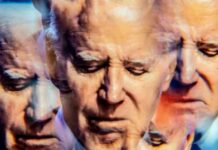Der japanische Premierminister Shinzo Abe reiste kürzlich nach Washington, D.C., um sich mit dem US-Präsidenten Donald Trump zu treffen. Die Strategien und Ziele von Abe standen dabei im Fokus der Gespräche.
Vor seiner Abreise war Abe sichtlich gut vorbereitet, als er in den Flieger stieg. Das Bild des entschlossenen Politikers, der sein Land mit Stolz vertritt, wurde von Fotografen festgehalten. Die Spannung und Erwartung für das Treffen zwischen Abe und Trump war in der Luft zu spüren, da beide Länder eine enge politische und wirtschaftliche Beziehung haben, die von großer Bedeutung ist.
Expertenanalyse: Japans Strategie unter der Lupe
Experten analysierten die möglichen Strategien, die Abe in den Gesprächen mit Trump verfolgen könnte. Japan ist ein wichtiger Verbündeter der USA in der Region, und Abe strebt eine Stärkung dieser Beziehung an, um gemeinsame Interessen zu vertreten. Die Experten diskutierten auch die wirtschaftlichen Aspekte der Beziehung zwischen den beiden Ländern, insbesondere in Bezug auf Handel und Technologie.
Ein Experte, der anonym bleiben wollte, sagte: „Die Beziehung zwischen Japan und den USA ist von großer Bedeutung für die Stabilität in der Region. Abe wird sicherlich versuchen, die gemeinsamen Ziele und Werte zu betonen, um eine starke Partnerschaft zu festigen.“
Historischer Hintergrund: Die Beziehung zwischen Japan und den USA
Die Beziehung zwischen Japan und den USA hat eine lange Geschichte, die bis in die Nachkriegszeit zurückreicht. Nach dem Zweiten Weltkrieg haben die beiden Länder eine enge Allianz aufgebaut, die auf gemeinsamen Werten wie Demokratie und Freiheit beruht. Diese Beziehung wurde im Laufe der Jahre durch politische, wirtschaftliche und kulturelle Verbindungen gestärkt.
In den letzten Jahren gab es jedoch auch Spannungen zwischen den beiden Ländern, insbesondere in Bezug auf Handelsfragen und Sicherheitspolitik. Abe’s Besuch bei Trump wurde daher als Chance gesehen, diese Spannungen zu überwinden und die Beziehung zu festigen.
Insgesamt war die Begegnung zwischen Abe und Trump von großer Bedeutung für die Zukunft der Beziehung zwischen Japan und den USA. Die Welt wird gespannt darauf warten, welche Ergebnisse und Vereinbarungen aus den Gesprächen hervorgehen werden. Abe’s gut vorbereitete Reise nach Washington zeigt, wie wichtig ihm die Beziehung zu den USA ist und wie entschlossen er ist, sie zu stärken.
Die Diskussionen und Verhandlungen zwischen Abe und Trump werden sicherlich Auswirkungen auf die globale Politik haben und könnten wichtige Weichenstellungen für die Zukunft der Region bedeuten. Die Welt wird gespannt darauf warten, wie sich die Beziehung zwischen Japan und den USA entwickeln wird und welche Auswirkungen dies auf die internationale Politik haben wird.









